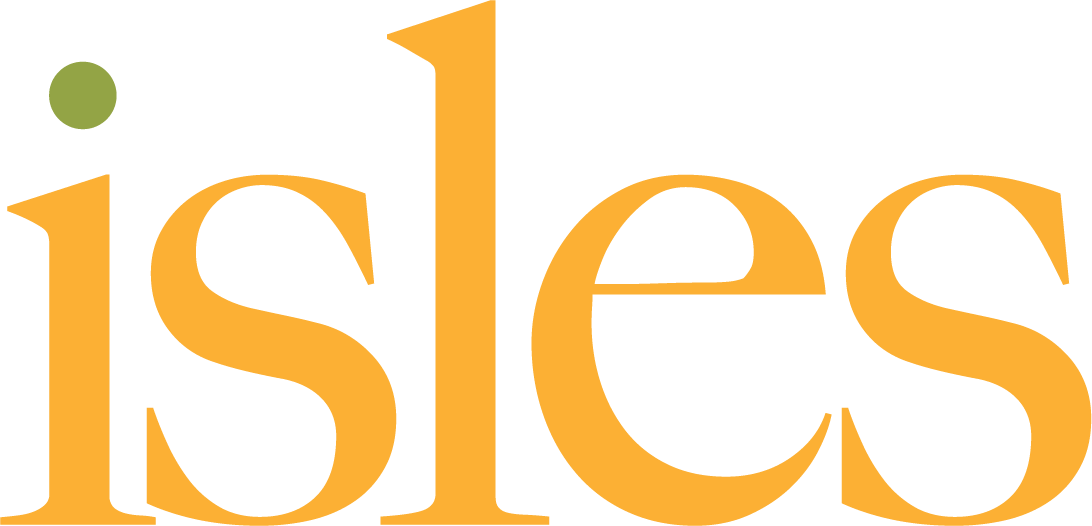To keep Isles’ friends in the loop regarding my transition, here is an update. A national search and consulting firm, Raffa-Marcum from Washington D.C. is supporting Isles’ CEO Search Committee. Response has been excellent. Our goal is to have a final decision by late spring.
At that point, I will stay on in a strategy, fundraising and support role for my successor for at least several months. I will also serve as ex-officio member of Isles’ board of trustees.
Most importantly, Isles management team is seasoned, strong and deeply committed to Isles unusual mission – and the inclusive ways we use to achieve it. In particular, John Hart, Isles’ extremely capable COO, has managed Isles’ day to day activities for six years, while I’ve been teaching half time. I am supremely confident in the next generation of Isles. We’ll keep you posted on our progress!
_______________________________________________________________________________________
As this transition unfolds, I’ve been asked to share learnings from my 39 years at Isles. Recently, the Princeton YWCA decided to recognize me as part of their Tribute to Women Awards. As the first man to receive this award, they asked me to share some thoughts on the award and their mission – to empower women and eliminate racism.
First, I thank the wise judgment of the Princeton YWCA Committee to have chosen my wife, Liz Johnson, 20 years before me!
How does it feel to be the first man to receive this award from the YWCA? First, I acknowledge (all men should) the benefits I’ve received simply because I am a man. I persevered for 39 years, but as a male entrepreneur, it was assumed that I could manage complex (male dominated) political and social relationships, protect myself in tough urban neighborhoods, connect to a diverse regional network of supporters, and of course, raise and manage money.
While decades of hard work and sacrifice went into creating and growing Isles and the other organizations that I co-founded, it would have been much harder if I was a woman. The same is true of course, if I was a person of color.
Thankfully, the times have improved since those early days. By far, most leaders of nonprofits in the Trenton region are now women. But troublesome biases still exist, and it is all of our responsibility to address them.
At Isles, our “north star” or end game is family self-reliance and sustainable communities. To meet this audacious mission, we developed approaches and tools for families and youth to use to further self-reliance and resilience. We partner with communities to build places (homes, former factories, gardens, parks, community plans), train and educate youth and adults, help families build wealth, clean up environmental threats to children – typically at the family level. This is because families are still our strongest social unit. Women head most (but not all) of our families.
How does this connect to race?
An old Anthropology professor of mine at Princeton, Ashley Montagu once noted, “there is a remarkable parallel between the phenomena of race prejudice and the prejudice against women… How often do men mistake their prejudices for the laws of nature!”
At Isles, we choose to work with mostly black and brown communities, because of the systemic nature of racism here in Mercer County and beyond. For example, roughly 8000 poor white families and 11000 poor black families live in our county. A white family in poverty has only a 1 in 20 chance of having to send their child to a high poverty school. (They fit in to the suburban middle-class fabric). If you are black though, odds are 3 out of 4 that your child must go to a high poverty school.
Since two of the primary predictors of student outcomes are peers and parents, why are we surprised when students of color too often underperform?
Our own story:
Each of us learns about racism and sexism differently. I was with my mother 2 weeks ago, and we discussed her family’s experience with the KKK when she was a little girl in Akron, Ohio. She spoke of how it felt to hide in their closets when the KKK burned crosses in their yard, and how the flickering flames shined through their windows at night. Her family was white, but they happened to be the first Catholics in that part of Akron, so they learned a bit about how outsiders felt, and to fight.
My father, on the other hand, had a Klansman father from Alabama. Growing up, I sensed that might be the case, but it was only acknowledged on my father’s death bed.
Here I am, one generation later, a white guy working and living in Trenton, mostly a community of color. Trenton is surrounded by one of the wealthiest regions in the country, and we often grapple with a collective sense of inferiority.
But this was an important training ground for us and our three sons. They learned a bit about minoritarian status, how to judge people by the content of their character, and the most important lesson – how to be multi-tribal, connecting with different kinds of people.
Do I have advice for others coming in behind me? This is not a theoretical question. We are searching for my successor as I write this. What traits should they bring?
First, I’d encourage them to be virtuous: compassionate, honorable, honest, etc. But the most important of the virtues is courage. That is what is required to step out of the herd and think and act differently. The scope and scale of the world’s challenges cries out for independent thinkers, and courageous actors.
At the same time, s/he needs to connect to multiple tribes, or herds. For thousands of years, we’ve been culturally wired to protect our tribe, yet the challenges often come from outside – threats like climate change, the global economy and migrations of people. More than ever, we need those that can look inward at their tribe and outward at the same time, and not flip out.
My advice to my fellow men – especially white men? It’s OK! This is in our, and future generations’ best interest to support equal status and opportunity for women and communities of color. Why care on a personal level? We share a responsibility to right historic wrongs today, but perhaps more important is that by being alongside, not in front of, women and communities of color, we will be more whole.
Back to Montagu in 1968: “The recent development of the women’s liberation movement constitutes a happy augury for the future, for the liberation of women will mean also the liberation of men.”
How will I move this agenda forward in the years ahead? I feel a responsibility, and opportunity, to help others learn from our experience. I will write and teach and connect to others that want to bring Isles-like policies, places, self-reliance and other benefits to their own communities. They shouldn’t have to go 39 years to figure it out.



 Foster self-reliant families and healthy sustainable communities
Foster self-reliant families and healthy sustainable communities